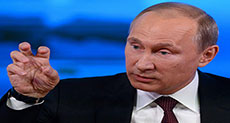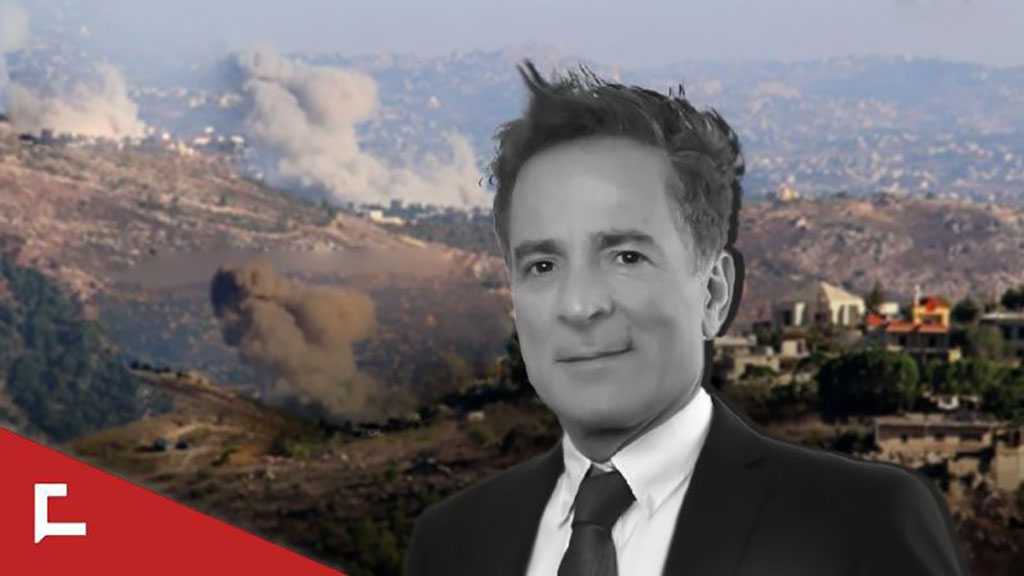Putin Picks up Where The US Led Coalition Never Left off

Darko Lazar
The Russian bear is officially at war for the first time since the collapse of the Soviet Union. On Wednesday, Moscow launched its first airstrikes against the Daesh terror group in Syria. But Russian fighter jets are not going to be flying alongside those of the US-led coalition; instead the Kremlin is creating its own alliance.

More than sixty countries have been bombing both Syria and Iraq for over a year now as part of the US-led effort to, as US President Barack Obama put it, "degrade and ultimately destroy" Daesh. Never mind that some of the members of that coalition, which includes the likes of Saudi Arabia and Qatar, are widely blamed for giving rise to Daesh.
Never mind that the coalition does not work, or at the very least co-ordinate its efforts with the people fighting Daesh on the ground, namely the government in Damascus and the Popular Mobilization Units in Iraq. Never mind that one of its members would rather bomb the Kurdish groups who are fighting Daesh, than Daesh itself. Never mind that coalition aircraft are ‘accidentally' dropping ammunition and supplies over Daesh controlled territory. But when the militantshave actually managed to expand their grip over Iraq and Syria since earlier this year, surely that must call for a change in strategy.
The US President does not think so. Speaking on the sidelines of the UN General Assembly this week Obama said, "We will ultimately prevail because we are guided by a stronger, better vision: a commitment to the security, opportunity and dignity of every human being."
Most of us can afford to laugh at such statements. But some world leaders can only afford to politely disagree, given Washington's track record in literally bombing states out of existence - countries like Libya only exist on the map after the NATO-backed ouster of Colonel Muammar Gaddafi. The Russian President Vladimir Putin is one of those leaders.
While addressing the UN General Assembly on September 28, Putin said; "Instead of the triumph of democracy and progress, we got violence, poverty and social disaster - and nobody cares one bit about human rights, including the right to life. I cannot help asking those who have forced that situation: Do you realize what you have done?"
Watching Putin that afternoon, I remember asking myself: ‘Why it took so long for someone to actually utter those words at a high-profile setting like the UN General Assembly?' After all, Berlin may have received its first batch of a few thousand Syrian refugees this summer, but Beirut alone has become home to over a million since 2011.
As that particular speech went on, and the events of the next few days unfolded, it became clear that the Kremlin had decided it was time to act. But this was not going to be like John Kerry's ‘shuttle diplomacy' of last September, accompanied by photo ops with Persian Gulf monarchs and empty promises of democratic futures for this state or that; a statement that must conveniently exclude Saudi Arabia, of course, who are only allowed to preach democracy to Syrian President Bashar al-Assad but not practice it.
The Russian military build-up in Syria was carefully timed and well executed. Moscow waited for an invitation from the government in Damascus to assist Syria in its fight against terrorism. And this is one of the key factors that make the Russian approach a diametric opposite to that of the US-led coalition. The Russians are operating within the boundaries of international law and in accordance with the UN charter, making this the only foreign military effort in Syria that actually has the blessing of Damascus.
Geopolitical analyst and founder of stopimperialism.org, Eric Draitser, told me that it's a game changer.
"While the Syrian army has fought valiantly, the reality is that it was able to hold strategically critical locations (cities, towns, some bases, etc.), but it was unable to effectively retake territory seized by Daesh. This can be seen specifically in cities such as Aleppo and Idlib. Now with Russian assistance, there will likely be an opening for Syrian forces and their Hizbullah allies to break through the Daesh/Nusra/'Islamic Army of Conquest' lines and do some real damage, including retaking territory. This is a huge game changer, especially if it means control of Highway 5 and the liberation of Aleppo. With Daesh supply lines disrupted and/or destroyed, and with the corridors blocked by Russian airpower, it means that the war might not be endless after all."
Moscow has maintained from the start of the Syrian conflict that its military assistance to Damascus is strictly aimed at combating terrorism. Some of the fiercest and most well trained militants fighting in Syria are Chechens - almost two thousand of them. Thousands of others, already returning home, are from former Soviet Republics. With powerful enemies in Tel Aviv, Riyadh and Washington, having the well-trained ‘dogs of war' in neighboring states is perhaps too close for Putin's comfort.
"More than 2,000 fighters from Russia and ex-Soviet republics are on the territory of Syria. There is a threat of their return to us. So instead of waiting for their return, we are better off helping al-Assad fight them on Syrian territory," Putin told CBS's ‘60 Minutes' last month.
And this is where it gets interesting. Because those terrorists are not just in Syria, but also in Iraq. Iraqi Premier Haidar Al Abadi already welcomed any future Russian military action against militants in his country. That's perhaps not all that surprising considering the fact that it comes shortly after the Russians, Iranians, Syrians and Iraqis opened an intelligence-sharing center in Baghdad last week.
Bassem Abu Tabikh, a member of Iraq's ruling State of Law Coalition, claims that, "the Baghdad government has been turning towards the Russians over the course of the last few months after the US-led coalition provided no intelligence needed to fight Daesh. American inaction drove the Iraqi government into the arms of the Kremlin."
When I asked him if this intelligence center was part of a much broader strategy, he opined that, "Today it is intelligence, tomorrow it's airstrikes against Mosul and Ramadi. These efforts can be the foundations of a broader alliance. With this intelligence sharing center, Baghdad, which was previously only affiliated with the so-called ‘resistance axis' - Iran, Syria and Lebanon's Hezbollah - has now become a de-facto member."
He adds, "Russian airstrikes on Daesh in Syria are a manifestation of the emergence of a multipolar world which the Americans are having a tough time accepting."
Washington is having a tough time indeed. Rodney Martin, a former US congressional staffer, told me that, "the United States never expected the deployment of Russian forces they have in Syria. The US believed since the fall of the Soviet Union that Russia would only be a regional geopolitical player and would never play an international role again. Obviously the US and the West were wrong."
US combat troops have literally been sneaking back into Iraq's western Anbar province since last month, without the consent of the parliament in Baghdad. Suspicious of American intentions since the formation of the US-led coalition against Daesh, many Iraqis believe that Washington is desperately trying to reestablish its nearly decade-long occupation of Iraq.
Martin states that, "the troop build up in Anbar is much like the [NATO] troop build-up in the Baltics. It's the West huffing and puffing, but in the end the West will not do anything because the West never takes on formidable foes."
But these geopolitical developments are as much about the Americans accepting a bipolar world as they are about the ‘Israelis' - Washington's number one ally in the region - accepting the new realities in the Middle East. Putin's actions in Syria and the emergence of this new alliance - comprising Russia, Iran, Syria and Iraq - have also clipped the wings of ‘Israeli' jets in Syria's airspace. Tel Aviv has launched airstrikes targeting Syria over ten times in the last two years in support of the militants on the ground. This is perhaps Putin's clearest message yet that the time has come where the ‘resistance axis' has the full military backing of the Russian bear.
Source: al-Ahed news




